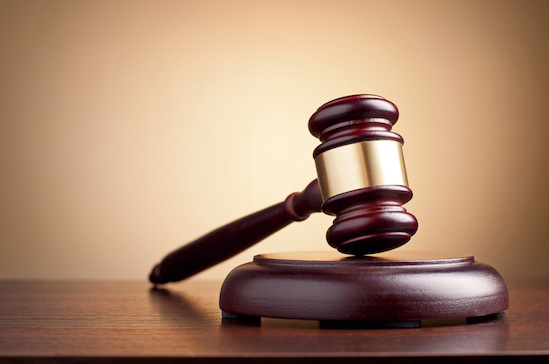What Are My Rights as a Renter?


Written by Jennifer Lyons on July 30, 2025
Whether you're moving into your first rental or you're a seasoned tenant, understanding your rights as a renter is essential. Renting a home should be a positive and empowering experience, and knowing your legal protections can make all the difference. Below, we’ve outlined the key rights renters have, so you can approach renting with confidence and peace of mind.
1. The right to a habitable home
A landlord is responsible for providing a home that is safe and fit to live in, even if isn’t explicitly stated in the lease. This standard is typically required by local habitability laws. This means:
- Proper heating, plumbing, and electricity
- No serious hazards like mold, pests, or structural issues
- Compliance with local health and safety regulations
If something makes your rental uninhabitable, your landlord is expected to address it promptly. Don’t hesitate to report maintenance issues in writing. It’s also a smart move to carry renters’ insurance — it helps protect your belongings in case of damage from things like leaks or electrical problems.
2. The right to privacy
In most states, a landlord cannot enter your home without proper notice, except in emergencies. While landlords may need to enter to perform repairs or inspections, they are required to:
- Provide advance notice (typically 24-48 hours, depending on state laws)
- Enter only during reasonable hours
Emergency situations, such as a burst pipe, may waive the notice requirement, but you are still entitled to a reasonable expectation of privacy.
3. Freedom from discrimination
The Fair Housing Act protects renters from discrimination based on:
- Race
- Religion
- Sex or gender identity
- National origin
- Disability
- Family status (e.g., having children)
Landlords are prohibited from treating you unfairly, such as denying you the opportunity to rent or changing terms, based on these protected characteristics. If you believe you’ve experienced discrimination, you can file a complaint with your local or state fair housing agency.
4. Fair security deposit practices
Your security deposit is meant to cover unpaid rent or fees, including damages beyond normal wear and tear, not to serve as extra income for your landlord. You have the right to:
- A reasonable security deposit amount (regulated in many states)
- A clear explanation or itemized list if any portion is withheld
- A timely return of your deposit (state laws typically set specific deadlines)
Document the home’s condition when moving in and out with photos or videos to protect your deposit and help you get the security deposit back in full.
5. The right to quiet enjoyment
Quiet enjoyment means you have the right to enjoy your home without interference. This includes protection from:
- Excessive noise from neighbors
- Repeated, unannounced visits from your landlord
- Unnecessary disruptions to your living environment
If your right to quiet enjoyment is violated, you can take steps to address it, including discussing the issue with your landlord or seeking legal advice.
6. Proper notice for rent increases or lease termination
Your landlord cannot change the terms of your lease or end it without following proper procedures. This includes:
- Giving adequate notice for rent increases (typically 30 to 60 days, depending on your state)
- Providing written notice of lease termination
Check your state’s specific laws and your lease agreement for details.
7. Protection from unlawful evictions
Eviction is a serious matter, but you have rights. Landlords must follow legal processes to remove you from the rental. You cannot be legally evicted without:
- Written notice explaining the reason (e.g., unpaid rent or lease violations)
- An opportunity to address the issue or present your case in court
If you are facing eviction, know you have options. You can challenge the eviction in court, and legal aid services may be able to help.
8. The right to a written lease agreement
A lease agreement serves as a legal contract outlining the terms of your rental. Always insist on a written lease that clarifies:
- Rent amount and due date
- Length of the lease
- Rules about pets, guests, or utilities
A written lease protects both you and your landlord, ensuring clear expectations.
9. The right to take legal action
If your landlord violates your rights or fails to meet their responsibilities, you may have legal options. This could involve:
- Filing a complaint with a local housing authority
- Exploring legal remedies, such as mediation services, tenant advocacy support, or small claims court
Don’t hesitate to seek legal assistance if you feel your rights are being ignored.
10. The right to assistance
Accessing support can make renting more manageable, especially in challenging situations. Renters may qualify for:
- Legal aid for resolving disputes
- Local tenant advocacy groups that provide guidance
Take advantage of these resources to protect yourself and maintain a positive renting experience.
Empower yourself as a renter
Understanding your rights as a renter empowers you to make informed decisions and ensures you’re treated fairly. Knowing what protections you’re entitled to — from living in a safe home to safeguarding your privacy — is the first step toward a smooth and stress-free renting experience.
If you’re unsure about your specific rights or need help addressing an issue with your landlord, contact your local housing authority or legal aid organization. Rent with confidence and advocate for yourself when needed!
Tags
Find an apartment you’ll love on Zillow
With Zillions of up-to-date listings and filters for your must-haves, it's easy to find your perfect apartment on Zillow Rentals.
Search rentals


